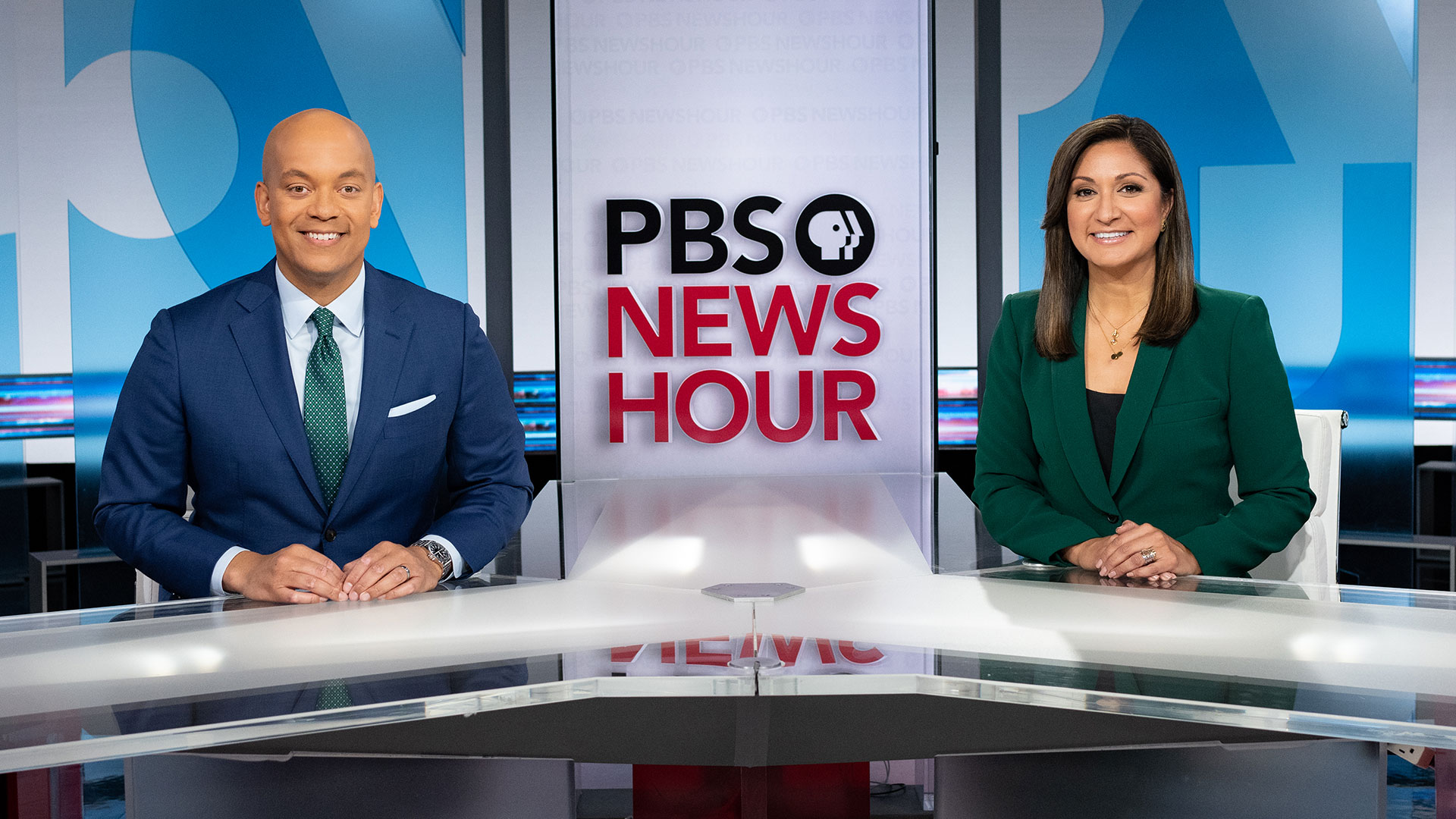Back in 1975, newsman Charles Kuralt chastised TV stations for “hiring hair, not brains.”
A typical anchorman, he said, has great hair and an empty mind. He “wouldn’t know a news story if it jumped up and mussed his coiffure.”
And now – a mere 48 years later – we have the exact opposite. Geoff Bennett – half of the new “PBS NewsHour” anchor team with Amna
Nawaz (they’re shown here) – has no hair and a sharp, journalistic brain.
Yes, Bennett said, he did get a suggestion that he add some hair. But that was earlier and not from PBS, which works “to cover the news as a public service, less so as a business enterprise.”
It has done that by filling its anchor desk carefully: In almost a half-century, it’s had six full-time anchors – Robert MacNeil, Jim Lehrer, Judy Woodruff, Gwen Ifill and now Bennett and Amna Nawaz.
These two took over on Jan. 2, with neither one fitting the old news-anchor image. “You have a brown Muslim, first-generation-American woman as a co-anchor of one of the most respected news programs,” Nawaz said, in a Television Critics Association press conference.
This is a newscast that began in 1975 – the same year as Kuralt’s pointed remarks – and kept growing. It airs from 7-8 p.m. weekdays on the East Coast and has extras – an updated version for the West Coast, half-hour newscasts on weekends, specials, a livestream channel and more.
The basic hour has advantages, said Sara Just, its producer. It’s “56 minutes of television, uninterrupted by commercials. That’s three times as long, almost, as the evening news” from ABC, CBS or NBC.
There’s room in the second half, Just said, for lighter subjects (“we have lots of arts coverage”), extra depth {“I like to think of ‘NewsHour’ as a daily news program and a news magazine combined”) and, especially, international coverage.
That last part is sort of a family tradition, Nawaz said. “My father used to anchor the English-language news in Pakistan as a young man.” Much laster, “I was covering Afghanistan and Pakistan and Syria and Turkey and the broader region for years.”
Her uncle was head of the Pakistani Army for two years, before dying of arsenic poisoning in 1993. Earlier, her parentsn had emigrated to the U.S. and she was born in Virginia.
The two anchors have much in common. He’s 42, she’s 43. “We have young kids who are around the same age,” Nawaz said. And, Bennett added, they have “the same taste in ‘80s pop music.”
And they’ve both known this network almost forever. “I did grow up as a PBS kid, watching ‘Sesame Street’ and all of that,” Bennett said.
Nawaz recalls being a “hard-core PBS kid. Education was big in my family and my parents said, ‘You can watch television, as long as you’re learning something.’”
She graduated from the University of Pennsylvania (co-captaining the field hockey team), added a master’s in comparative politics at the London School of Economics and planned to be a lawyer.
But then, just as she was starting an internship at ABC’s “Nightline,” came the Sept. 11 attacks. “I just saw how incredibly important it was for journalists to do do their jobs in that moment,”
Bennett, by comparison, said there was no doubt he would be in news. He gobbled up newscasts and newspapers as a kid and has “no other employable skills.”
After graduating from Morehouse, he went to a conference for Black journalists and was pointed toward an internship with ABC’s Carole Simpson, the first Black woman to anchor a network newscast.
From there, he bounced between networks – ABC, PBS, NBC, NPR – before returning to PBS in November of 2021, as the chief White House correspondent and weekend anchor. Nawaz had reached PBS in 2018, after working at ABC (twice) and NBC. And then – after Woodruff stepped down to focus on documentaries – they became the anchor team.
That began just in time to cover the bizarre struggle for the speaker-of-the-house job – much of it happening late at night. “We had our livestream channels,” Nawaz said. Reaching viewers at odd times, “PBS NewsHour” had become a sort of “PBS News24Hours.”

Here’s the opposite of the dim/hairy news
Back in 1975, newsman Charles Kuralt chastised TV stations for “hiring hair, not brains.”
A typical anchorman, he said, has great hair and an empty mind. He “wouldn’t know a news story if it jumped up and mussed his coiffure.”
And now – a mere 48 years later – we have the exact opposite. Geoff Bennett – half of the new “PBS NewsHour” anchor team with Amna
Nawaz (they’re shown here) – has no hair and a sharp, journalistic brain. Read more…